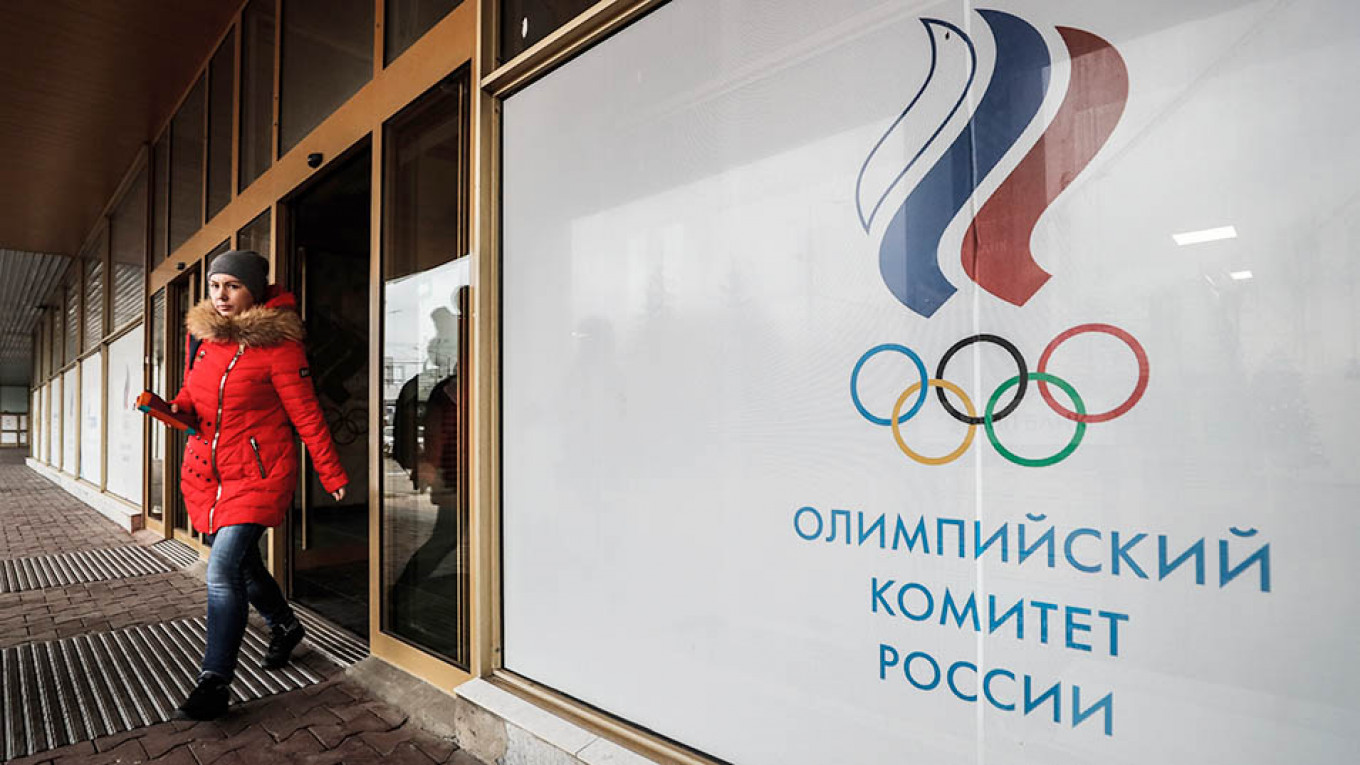
Russia will be banned from competing in or hosting major world sporting events for four years after the World Anti-Doping Agency (WADA) unanimously ruled that Moscow had tampered with doping laboratory data.
The ruling is the latest blow to Russia’s already tarnished sporting reputation, which has been hit by scandals since a 2015 report commissioned by WADA found evidence of mass doping in Russian athletics.
Here’s a look at what WADA’s latest ruling means for Russian athletics — and how Russian officials are reacting:
What it means
— Russia will be banned from the Olympics and other major world championships and from hosting major sporting events. Russia will miss:
- Summer Olympics 2020 in Tokyo
- IAAF World Championships in 2012
- Winter Olympics 2022 in Beijing
- FIFA World Cup 2022 in Qatar*
- Women’s World Cup 2023
- Universiade 2021 and 2023 (hosted in Russia)
*According to FIFA rules, only national teams can compete in the World Cup. FIFA has yet to comment on the issue, keeping the door open for Russia.
— Russian athletes who prove to WADA that they are clean will still be able to compete at major international sporting events without their flag or anthem, something they did at the 2018 Winter Olympics in Pyeongchang.
— WADA said that 145 Russian athletes whose data was manipulated will be banned from competing under any flag.
— Russian officials will be barred from attending sporting events and the country will not be allowed to host them. The ban does not apply to the four matches Russia is hosting next summer during the European football championship in St. Petersburg, as the tournament is not considered a “major event.”
— The Russian Anti-Doping Agency (RUSADA) has 21 days to challenge WADA’s ruling. If RUSADA appeals WADA’s punishment, the case will be referred to the Court of Arbitration for Sport.
— Alexander Ivlev, the chairman of RUSADA’s supervisory board, said its committee will meet before Dec. 19 to decide whether to challenge the ruling or not.
How Russia reacted
— Maria Lasitsekne, three-time World Champion in high-jumping:
“Totally not surprised about this outcome. Today is a very shameful day and I never believed the promises that everything will be OK. I will continue fighting for my own right to compete, even under a neutral flag. I am not planning to change my nationality. I am annoyed that athletes are alone in their fight and the heads of sport in our country are only willing to defend us on paper.”
— Alexander Tikhonov, four-time Olympic biathlon champion:
“We got what we deserved. We have so many former athletes in the State Duma, couldn’t they sort out this mess? I am with WADA on this one.”
— Evgeniy Kafelinkov, Olympic tennis champion:
“There was systemized doping in Russia, I have no doubt about it. Someone should be punished for it. Russian sport could have restored its reputation if the people who started it all just went out and said: ‘Yes, I screwed up, please forgive me.’ But no one wants to take responsibility for this. In the end, everything is shifted on the poor athletes.”
— Prime Minister Dmitry Medvedev:
“The fact that all these decisions are repeated, and often in relation to athletes who have already been punished in one way or another … suggests that this is a continuation of the anti-Russian hysteria that has already become a chronic condition.”
— Yuri Ganus, the head of RUSADA, said Russia had “no chance” of winning an appeal against the WADA decision, calling the four-year ban a “tragedy.” Some athletes are contemplating leaving Russia, Ganus added, describing the sentiments among athletes as “awful.”
— Igor Lebedev, deputy speaker of the State Duma, said the move was a serious blow to Russian sport that required a tough response from Russia’s authorities.
— Vyacheslav Fetisov, the State Duma’s special representative for international interparliamentary and sports development organizations:
“I’m very upset about this, personally upset. This is no longer a negotiation process, the decision has been made. The only option for us is to go to the arbitration court and look for options. I don’t know which, since the WADA executive committee’s decision was unanimous.”
— Vasily Titov, the head of the Russian Olympic summer sports federations:
“WADA is trying to drive a wedge between Russian athletes and the state. This is not about sports, it is purely politics.”
— Lyubov Sobol, an opposition politician and lawyer for the Anti-Corruption Foundation (FBK):
